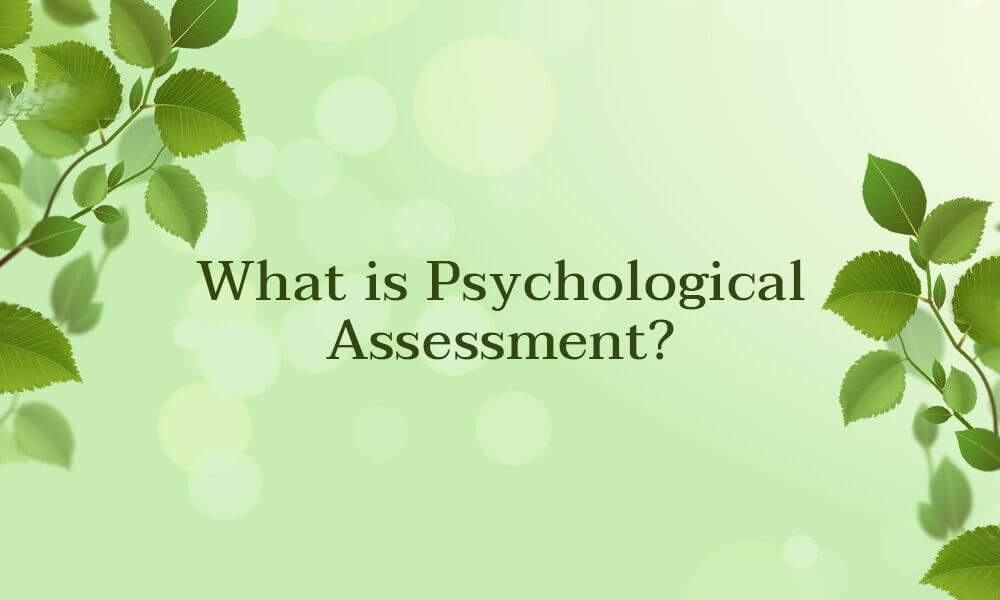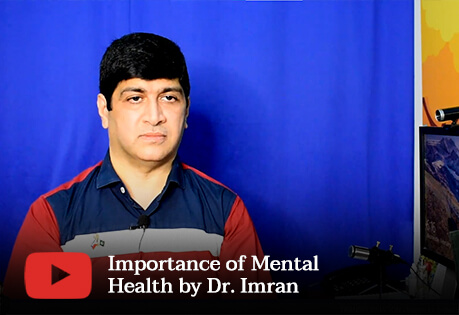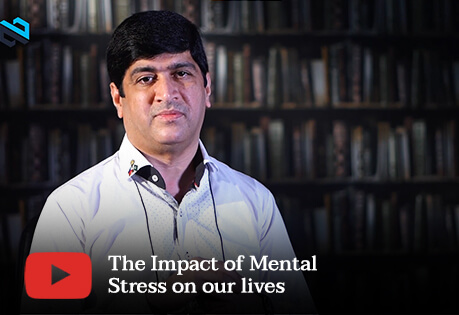- Jofa Tower 5th floor, SB-23, Block 13 C, Main University Rd, Gulshan-e-Iqbal, Karachi.
- +92 322 3746726
- tis@transformation.com.pk
What is Psychological Assessment?

rTMS Treatment in Karachi for Mental Health Conditions
May 24, 2023
What is the difference between Psychotherapy and Counseling?
May 24, 2023Psychological Assessment is a method of collecting data regarding an individual’s behaviours, abilities and other characteristics in order to make a diagnosis and/or for planning treatment. It involves the use of several procedures and specialized instruments such as standardized tests (e.g. Thematic Apperception Test), observation (Formal or Informal), Interviews (Structured or Semi-structured), Self-report measures (e.g. Personality Assessment Inventory), psychophysiological devices (e.g. Biofeedback) and medical procedures (e.g. blood tests). Psychological Assessment is not just utilized in clinical settings but they are also effective in many other fields, such as education (e.g. Differential Aptitude Test for career counseling), organizations (e.g. 16 Personality Factors Questionnaire), research (e.g. Beck Youth Inventory), forensic (e.g. Minnesota Multiphasic Personality Inventory) and other settings.
At Transformation Wellness Clinics (TWC), Psychological Assessment is conducted by qualified Clinical Psychologists in order to develop a better understanding of an individual’s physical, psychological, social, and occupational functioning so that he/she can be diagnosed and treated accordingly.
What is the difference between Psychological Testing and Psychological Assessment?
Although Psychological Testing and Psychological Assessment are inter-related and psychologists tend to use both techniques to make a diagnosis or treatment plan, they are different from one another as in Psychological Testing, only formal testing, one of the methods of Psychological Assessment, is utilized while Psychological Assessment involves a combination of psychological tests, observations, interviews, medical and educational records in order to reach a conclusion, thus it is more detailed and comprehensive in nature as compared to Psychological Testing.
An example of Psychological Testing can be administering the Bender Gestalt (BG) test on an individual with depression, then scoring and interpreting the drawings of the 9 cards in order to reach a conclusion. An example of Psychological Assessment can be administering an assessment battery on this individual, such as:
- Clinical Interview, to analyze the individual’s presenting complaint, presenting problems, family history, family psychopathology, school history, friendship history, medical history, substance abuse history, prior treatment, etc.
- The Mental Status Exam (MSE), to assess the mental state and behaviours of the client at the present moment.
- The Beck Depression Inventory (BDI), to measure the severity of the client’s depressive symptoms.
- The Personality Assessment Inventory (PAI), being a diagnostic test, will further evaluate the intensity of depression.
- The Rotter’s Incomplete Sentence Blank (RISB), to analyze familial, general, social and sexual attitudes and character traits. Since it is a semi-projective test, it can even tap into the client’s unconscious elements.
- Thematic Apperception Test (TAT), to reveal the client’s perception regarding his/her relationships with others.
- The Human Figure Drawing (HFD), to reveal the client’s emotional states.
Afterwards, the tests will be scored and information will be interpreted from the test results along with the clinical interview, behavioral observations and other sources such as school and medical records. Then a psychological assessment report is formulated and feedback is provided to the individual and/or the referral source.
What are the benefits of Psychological Assessment?
Psychological Assessment provides a variety of benefits for both clinicians and clients. First of all, it validates the client’s diagnosis made by the clinician. For example, a teenager exhibiting symptoms of anxiety can be effectively diagnosed if he/she scores high on the Anxiety Scale in the Personality Assessment Inventory (PAI). Furthermore, the objective reports from the assessments, the client’s subjective data from the clinical interview combined with the clinician’s observations of the client aid the formulation of an effective treatment plan, which increases the chances of treatment compliance and treatment outcome.
Clients also benefit from the assessment as it helps them to gain insight regarding thoughts and behaviours that were previously unknown, as well as helpful information on known phenomena. Moreover, it can boost the client’s motivation to seek treatment as the assessment validates the client’s current level of functioning. In addition, the insight generated from the assessment can be used to psycho-educate others and increase awareness regarding psychological assessment, resulting in more people being assessed to improve mental wellbeing.
What are the limitations of Psychological Assessment?
Some limitations of Psychological Assessment include resistance from the client, which is often expressed by not sharing information during the Clinical Interview, or by providing incomplete or inaccurate information or responses during tests. Sometimes, the assessment is not conducted properly due to lack of training or experience of the clinician in the field. In addition, clinicians often use outdated testing instruments, e.g. using the 4th edition of the Wide Range Achievement Test (WRAT) instead of the current 5th edition. All these result in the inability for clinicians to diagnose or they diagnosing incorrectly, which hinders the treatment process and aggravates the client’s symptoms.
However, some Psychological Tests, such as the Personality Assessment Inventory, have validity scales to check the accuracy of the client’s responses and whether or not the client is faking good (presenting himself/herself in a positive manner) or faking bad (presenting himself/herself in a negative manner). Moreover, multiple tests during assessment ensure reliability as if one test reveals some information, then that information will also appear in other tests. For example, if a teenager draws a pointed figure and/or teeth on the Human Figure Drawing and scores high on the Beck Youth Anger Inventory (BANI-Y), then it can be said that the client exhibits symptoms of aggression. Yet, it is crucial that clients provide an accurate and holistic picture of their mental health concerns so that they can be properly assessed, diagnosed and treated.
Where are Psychological Assessment services available?
Transformational Wellness Clinics (TWC) is a reputable organization where Psychological Assessment is one of the many services that are available for both children and adults. At TWC, Psychological Assessment is conducted by skilled Clinical Psychologists and then a team of neurologist, psychotherapists, psychiatrists, and hypnotherapist critically examine individual cases and design the best treatment plan in order to provide the best services in Pakistan, thanks to the multi-disciplinary setup of the organization. Moreover, TWC’s Electronic Medical Records (EMR) ensures that clients are timely assessed, diagnosed and treated effectively to obtain the best results.






